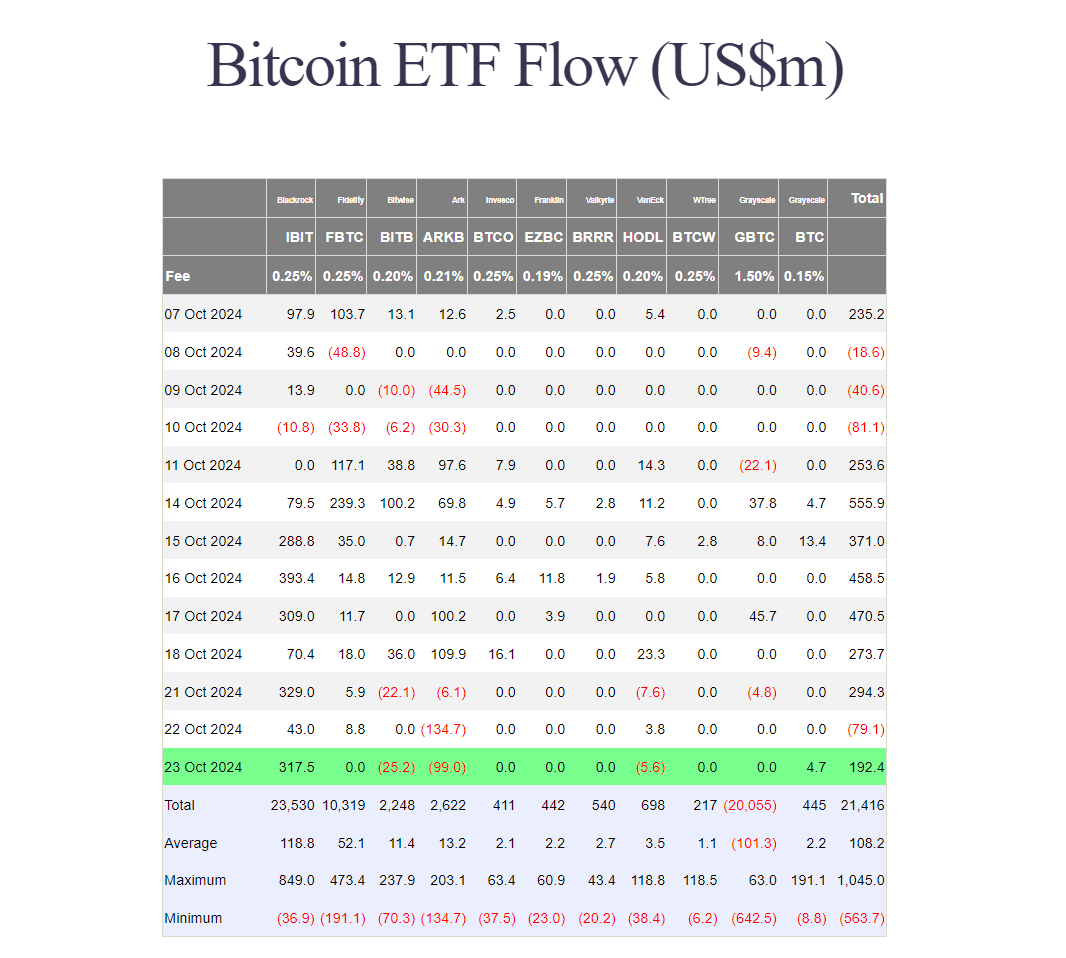Key Insights
- BlackRock’s iShares Bitcoin Trust has attracted more than $317 million in new investments, while other ETFs have seen declines.
- Bitcoin’s value is fluctuating, recently hitting a high of $69,500 last week and currently around $67,000.
Disseminate this article
BlackRock’s iShares Bitcoin Trust (IBIT) continues to pique investor interest, closing Wednesday with over $317 million in net inflows while most other ETFs struggle to keep pace.
Trailing behind IBIT, Grayscale’s Bitcoin Mini Trust, with nearly $5 million additional gains yesterday, as noted by Farside Investors data. Meanwhile, ARK Invest’s ARKB, Bitwise’s BITB, and VanEck’s HODL suffered combined losses of nearly $130 million.

With IBIT experiencing massive inflows and backing from BTC, the collective US spot Bitcoin ETFs reversed a downward trend yesterday, pulling in about $192 million overall.
This week has seen mixed performance for these funds, which stands in contrast to last week’s lack of net outflows. Flows turned negative on Tuesday after a gain of $294 million on Monday.
ARKB, which saw over $300 million in inflows last week, has been hit hard, with nearly $240 million in redemptions this week, almost erasing its prior week’s gains. Meanwhile, GBTC’s outflows appear to have stabilized, experiencing only about $5 million in losses on Monday.
The latest performance correlates with the fluctuations in Bitcoin’s price, which after reaching a peak of $69,500 last week has pulled back to around $67,000, according to CoinGecko.
Analysts at Standard Chartered believe that the leading cryptocurrency will rebound to its previous record high before the upcoming presidential election, likely enhancing the potential for an “Uptober.”
However, the recent downturn could hedge the “Uptober” sentiment, especially with the US presidential elections looming. Bitcoin may encounter a “sell-the-news” phenomenon as the key event approaches.
As the election date nears, investors tend to speculate on how the outcomes might influence different asset classes, including cryptocurrencies. This speculation can heighten market volatility, prompting traders to liquidate assets to capitalize on profits pre-election.
Bitcoin’s latest price shifts seem to be more closely tied to broader macroeconomic factors rather than direct electoral influences. However, significant election-related updates could prompt investor reactions, aiming to recalibrate their portfolios in light of perceived opportunities or risks. Some experts anticipate that a Trump victory might lead to a surge in Bitcoin prices due to his pro-cryptocurrency posture.
Following the elections, there won’t be much reprieve for the market as the next FOMC meeting will convene for the Fed’s rate decision.
Market watchers expect the central bank to reduce rates by 25 basis points as part of its ongoing monetary policy tweaks, which experts believe could further favor price increases for Bitcoin.








